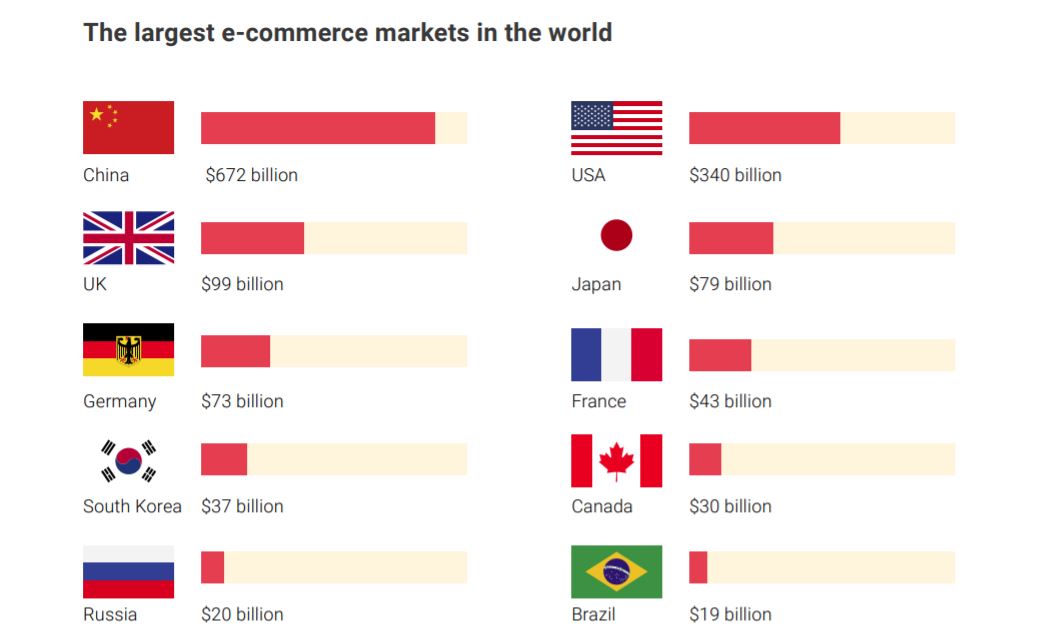The COVID-19 pandemic has changed the way we work, shop, and live. With lockdowns and restrictions on going out in public, people today are shopping online more than ever before. Given the economic constraints and looming uncertainty, it was natural for consumers in the early days of the pandemic to cut back on spending on discretionary categories such as entertainment and travel.
The impact of COVID-19 on online shopping
As per IBM data, the pandemic has accelerated consumers’ shift toward e-commerce by five years. Global retail e-commerce sales are predicted to reach $4.5 trillion by 2021. Most of this growth will be driven by users of mobile devices. In 2021, mobile e-commerce could account for nearly 72.9 % of all e-commerce sales. With a total retail sales share of 15.9%, China now has the fastest-growing e-commerce market in the world.
Even with the uncertain conditions, consumers are resilient and adapting quickly to new shopping behavior. Many are adopting online shopping for the first time. There has been 12.2% growth for new online shoppers who are aged 65 and above.

Why you should care about the customer experience more than ever before
There are between 12 Million to 24 Million e-commerce sites in the world with new ones being created every day. The competition is fierce, and shoppers are well informed. 85% of online shoppers research before making a purchase. Consumers are on the lookout for a great brand experience, convenience, and value. Product images, product reviews, option for a side-by-side comparison of products, video demos, live chat option, fair return policies, convenient payment options, and other usability factors influence their buying decision.
A good brand experience is critical for driving conversion and retention. In fact, customer experience is a key brand differentiator that can make or break an e-commerce business. As per Gartner’s marketing survey, more than two-thirds of companies compete mainly based on CX.
- 8 in 10 customers are ready to shell out more for a great customer experience.
- 72% of customers will share a positive brand experience with 6 or more people.
- 92% of users will abandon a brand after two or three negative interactions.
Why autonomous anomaly detection is critical for e-commerce?
With AI-enabled analytics, e-commerce brands can monitor the numerous variables that impact the consumer’s buyer’s journey to deliver a seamless online shopping experience. By leveraging advanced artificial intelligence and machine learning algorithms, enterprises can detect minute anomalies, and patterns hidden in the complex layers of E-commerce data, involving large volumes of daily transactions, sophisticated technology, complex inventory systems, and logistical networks.
With real-time insights on issues that impact customer experience, store owners can avoid pricing glitches, reduce cart abandonment, drive user engagement, deliver personalized marketing campaigns for a great customer experience.
Want to Increase E-commerce Conversion Rates?
Source link











Leave a Reply